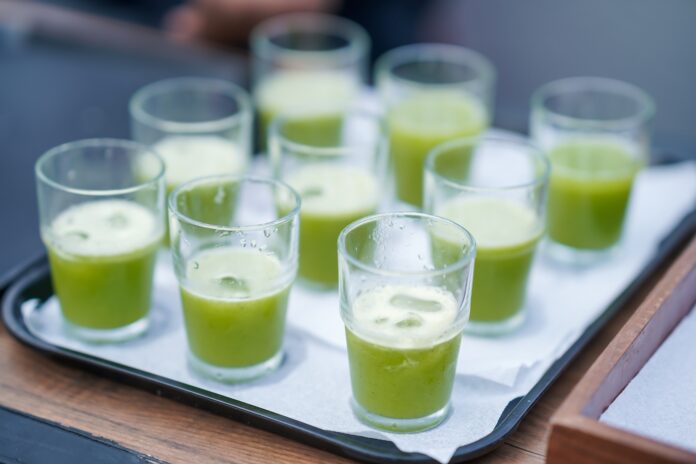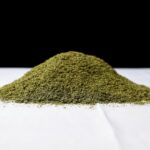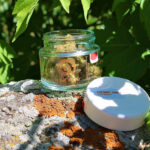The allure of free samples is hard to resist. Who doesn’t love single-serve cups of chips and salsa at no charge? Hands down, the big dog of the free-sample world is Costco, which has reaped the scientifically proven benefits of free samples for years. Though the company primarily is known for its wildly successful membership program and bargain-basement pricing driven by massive economies of scale, its sample game is what keeps many customers returning … and buying.
So settle in with a five-dollar rotisserie chicken while we uncover insights from Costco’s signature marketing play and explain why pre-rolls can act as your company’s little paper cup of goodness that boosts lifetime customer value.
If you’re anything like me, you’ve spent enough time grazing Costco on a Saturday to loosen your belt a notch or two (or three). You might be tempted to feel a little guilty, but don’t. Those tasty morsels are scientifically proven to make you more likely to buy, thanks to a psychological principle known as reciprocity.
Reciprocity ties into the deep-seated human expectation that relationships require both giving and receiving. When someone gives you something for free, you most likely will feel obligated to reciprocate. At Costco, that often means buying an industrial-size box of flautas even though you went to that aisle intending to buy cheese.
Giving away samples is like using a cheat sheet to tap into an innate human trait that reportedly is dangerous for cats: curiosity. Mario Livio, astrophysicist and author of the book The Science of Why, says curiosity comes in two different forms: perceptual and epistemic. Perceptual curiosity occurs when something differs from a human’s expectations or existing knowledge. Epistemic curiosity drives people to make scientific discoveries, create art, and learn new things.
Cannabis merchants can’t offer free samples of flower or infused products, but the humble penny pre-roll deal employs the same psychological ploy as shot-sized paper cups of Bitchin’ Sauce without flouting public-consumption bans and other regulations (in most places). And it works.
Consumers are all too familiar with the downsides of pre-rolls—canoeing, clogging, and harsh, resin-soaked crutches—but by offering penny joints that defy these expectations and provide a new, more pleasant experience, brands can tap into both perceptual and epistemic curiosity at the same time.
Sample products also reduce the perceived risk of trying a new brand or strain. Customers can test a product without committing to a whole eighth or quarter, making them more confident about their decision. Many people visit dispensaries with a set spending limit, so offering a sample that doesn’t endanger their ability to purchase what they came in to buy is a winning strategy.
Budtender education is imperative for successfully sampling products. Promoting a sample product gives budtenders an opening to engage customers about specific strains and guide them to a recommendation. When customers already know what they want, budtenders can mention the pre-roll sample as an opportunity to try something new.
Ensure budtenders know what makes each pre-roll stand out by providing samples for them to take home and try. Budtenders sell hundreds of products, so making your pre-rolls easy to remember will go a long way to increase sales.
What’s the best day to offer samples? It’s complicated. One study published in the Journal of Retailing found offering deals on weekends can be more effective than on weekdays, as more people have free time on weekends to try new products. Costco offers the widest selection of samples on weekends for precisely that reason. Want to create interest around a new strain? Offering a sample deal on the weekend will reach a bigger audience and allow budtenders to have more conversations.
Want to drive foot traffic during slower times? Offering sample upsells during those periods may be more effective in boosting sales and turning occasional shoppers into repeat buyers.
Ultimately, the only way to know the best time is to test several strategies and measure how they perform against key benchmarks. You can’t make (good) decisions without data, and looking at what the numbers say should back up all your choices. Data beats emotion.
Everyone loves a good bundle deal, especially if it provides perceived value. Think about creating a pre-roll “sampler pack” of your top three joints, a branded lighter, and a discount on the next purchase. This encourages first-time customers to try your products and builds brand loyalty by providing value on day one.
Samples may seem like a benign strategy, but one of the world’s most successful retailers uses the ploy to trigger curiosity and drive brand loyalty. With pre-rolls experiencing the most growth among all product categories, it’s time for operators to explore how they can disrupt the pre-roll experience and give customers a “sample” of their top-shelf strains.















[…] T-shirts, and we’ve got live music at the afterparty. Those types of interactions do far more to build brand loyalty, to create that authenticity and that emotional connection, than any newspaper ad or Instagram or […]
[…] customers to return three times instead of relying on a larger first-time deal, the shop is establishing brand loyalty, whether the customer is conscious of it or […]
[…] in urban areas and may not live anywhere near a licensed dispensary. In each of these instances, achieving loyalty is next to impossible. Businesses will need to work with local regulators to change zoning […]